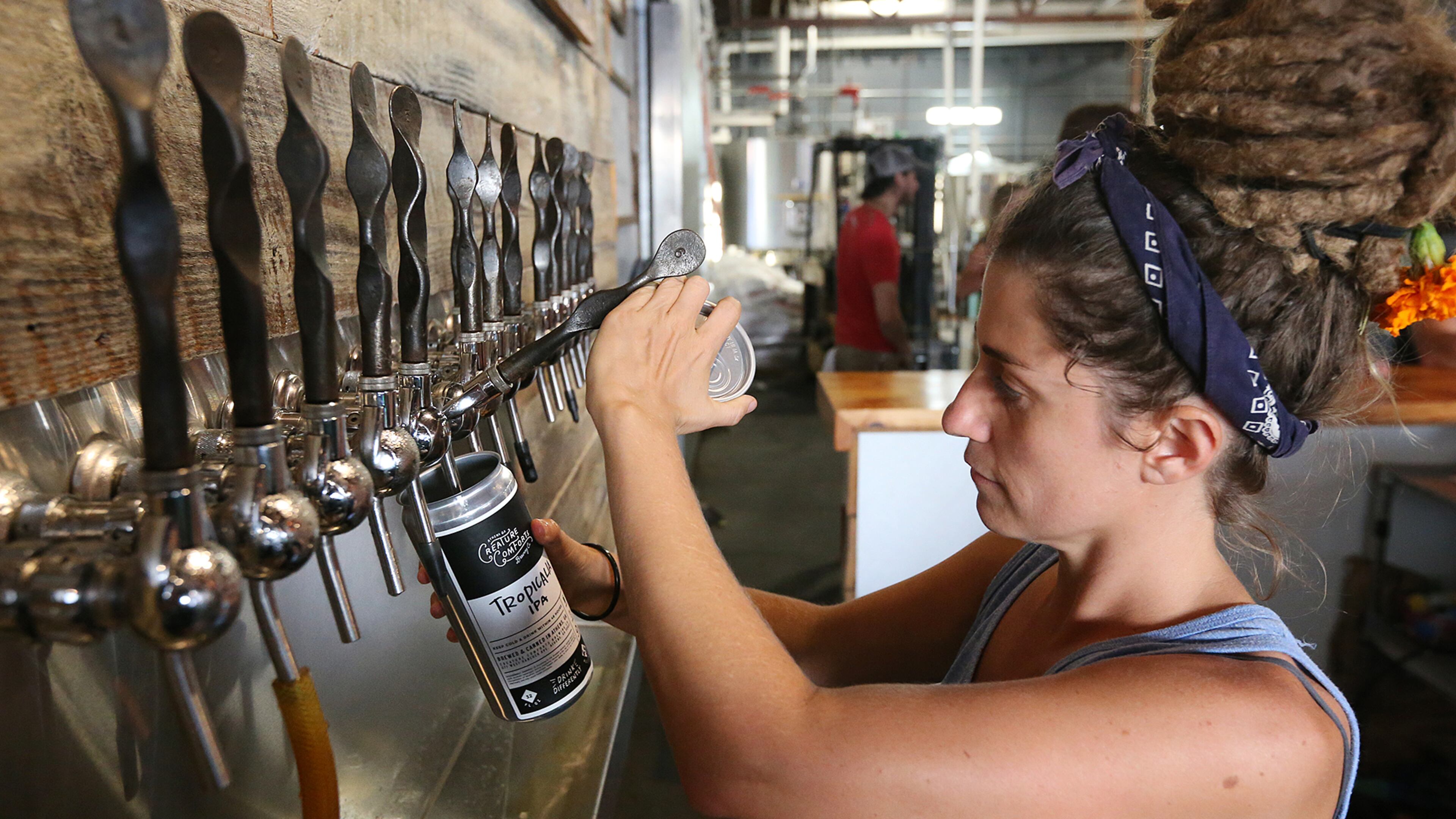No more small-beer reforms of Georgia's alcohol laws

Have you ever found one last beer in the fridge, only to have it explode in a foamy mess when you open it? That’s pretty much what happened with one of last year’s most-discussed laws, the so-called Beer Jobs Bill.
Throughout the 2015 legislative session, Georgia’s craft breweries fought an uphill battle against both the alcohol wholesalers and the lawmakers who insist they’re for free markets and small businesses, but whose actions tell us otherwise. Finally, they won a relatively small victory — permission to sell their beer to visitors touring their breweries — only to watch as the Revenue Department issued a groundless regulation that left them worse off than before.
Speaker David Ralston told the AJC in December that Revenue should “go back and revisit that (regulation), because if they don’t, we may have to.” Kudos to him for making that clear. But don’t stop there.
Legislators shouldn’t have stopped there last year, and the actions of the wholesalers and regulators demonstrate why. The law already tilts the playing field steeply in the wholesalers’ favor, and they pour hundreds of thousands of dollars into campaign coffers to keep it that way. They won’t stop overreaching until legislators do more than slap them on the wrists.
So here’s what a real, pro-business reform of Georgia’s dated distribution laws would look like:
No more restrictions at all on how much brewers can sell at their own facilities. We’re not barely post-Prohibition anymore. Let brewers — including Budweiser in Cartersville — sell as much beer as they can, packaged in any way, from their own manufacturing premises. That goes for brewpubs, too.
While they’re selling, let them sell food to their customers. Currently, breweries may only allow food trucks on their property — but not necessarily all food trucks, and they are reluctant to allow customers to buy food and beer in a single transaction. This is not just anti-business, it’s anti-public safety: Making it hard for people drinking alcohol to have food with it only creates problems. The only ostensible reason for such a prohibition is to make life hard for brewers.
Another problem for breweries is Revenue practically prohibits them from telling customers, including followers on social media, where their products are actually available for sale. (Such publicity is deemed a “thing of value” barred by law.) This is nonsense: We’re talking about the Revenue Department, not the Ministry of Truth.
Finally, keep the wholesalers from retaliating against them by significantly altering the contractual relationship between the two. Currently, brewers must sign what amount to lifetime agreements with the wholesalers that distribute their products to retailers. If the relationship goes sour or isn’t working out to the brewer’s liking, for all intents and purposes it can’t change distributors without going out of business first. That’s absurd.
Some readers may wonder why I and others make such a big deal about a relatively small sliver of Georgia’s economy. The answer is simple: It’s as clear a view as you’ll get on the way power and money interact in a manner wholly contrary to the stated principles of our Republican majority. It’s an ugly scene, and many of us won’t forget what we’ve seen come election time — this year, or in the future.
